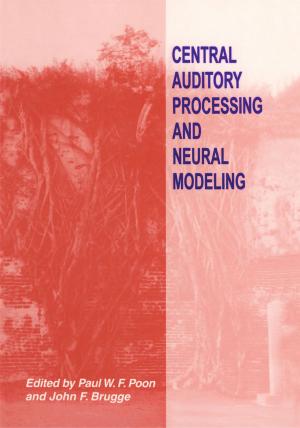True Nature
A Theory of Sexual Attraction
Nonfiction, Health & Well Being, Psychology, Human Sexuality, Science & Nature, Science, Biological Sciences, Evolution| Author: | Michael R. Kauth | ISBN: | 9781461543015 |
| Publisher: | Springer US | Publication: | December 6, 2012 |
| Imprint: | Springer | Language: | English |
| Author: | Michael R. Kauth |
| ISBN: | 9781461543015 |
| Publisher: | Springer US |
| Publication: | December 6, 2012 |
| Imprint: | Springer |
| Language: | English |
I have long been awe-struck by authors' claims that their books had been in the making for 5, or 10, or even 15 years. I now have a better appreciation ofthe work involved in bringing a book to press. The seeds of this project have had a long germination. The impetus for this book began more than 10 years ago when I was a graduate student in clinical psychology. Having an interest in human sexuality-and in theories on the forms of sexual attraction specifically-I was perplexed by various perspectives on this subject. Disciplines of thought that I encountered medicine, evolutionary biology, developmental psychology, gay/lesbian theory, social constructionism, anthropology, Marxism, Christianity, and others-perceived the issue so differently, so strongly, with almost no overlap. I was fascinated that the question ofhow and why one is attracted to either one or both sexes could elicit such conviction and divergent points of view. There seemed to be no easy way to resolve these differences. Still, what frustrated me most in my readings were several conceptual problems among the two prominent proponents of contemporary sexuality theory scientists and social constructionists. One ofmy first frustrations with biomedical and social scientists who write about sexuality was that they often define sexual attraction in strict behavioral terms, as completed observable sexual acts--observable in the sense that such acts or their consequences are seen by others.
I have long been awe-struck by authors' claims that their books had been in the making for 5, or 10, or even 15 years. I now have a better appreciation ofthe work involved in bringing a book to press. The seeds of this project have had a long germination. The impetus for this book began more than 10 years ago when I was a graduate student in clinical psychology. Having an interest in human sexuality-and in theories on the forms of sexual attraction specifically-I was perplexed by various perspectives on this subject. Disciplines of thought that I encountered medicine, evolutionary biology, developmental psychology, gay/lesbian theory, social constructionism, anthropology, Marxism, Christianity, and others-perceived the issue so differently, so strongly, with almost no overlap. I was fascinated that the question ofhow and why one is attracted to either one or both sexes could elicit such conviction and divergent points of view. There seemed to be no easy way to resolve these differences. Still, what frustrated me most in my readings were several conceptual problems among the two prominent proponents of contemporary sexuality theory scientists and social constructionists. One ofmy first frustrations with biomedical and social scientists who write about sexuality was that they often define sexual attraction in strict behavioral terms, as completed observable sexual acts--observable in the sense that such acts or their consequences are seen by others.















